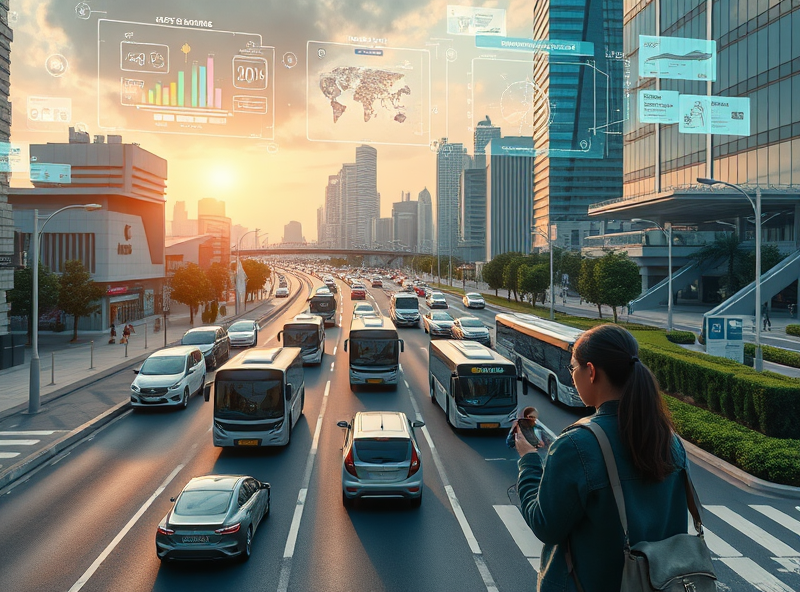AI for Smarter Transportation

Artificial Intelligence (AI) is revolutionizing the way we think about transportation, making it safer, more efficient, and environmentally friendly. One of the most impactful applications of AI in transportation is in traffic management. AI-powered systems analyze real-time traffic data to optimize traffic flow, reduce congestion, and even predict potential bottlenecks before they occur. This not only saves time for commuters but also reduces fuel consumption and emissions, contributing to a greener planet. Additionally, AI is at the core of autonomous vehicles, which are designed to reduce human error and improve road safety. These vehicles use machine learning algorithms to interpret their surroundings, make split-second decisions, and navigate complex traffic scenarios. AI is also being used in public transportation systems to enhance scheduling, predict delays, and provide real-time updates to passengers, ensuring a smoother travel experience. By integrating AI into transportation, we are paving the way for smarter cities and a more sustainable future.
AI Revolution in Retail and E-Commerce

Artificial Intelligence (AI) is transforming the retail and e-commerce industries in ways that were unimaginable just a few years ago. From personalized shopping experiences to efficient inventory management, AI is making both businesses and consumers smarter. For instance, AI-powered recommendation engines analyze customer behavior and preferences to suggest products tailored to individual tastes, enhancing the shopping experience. Chatbots, another AI innovation, provide 24/7 customer support, resolving queries instantly and improving customer satisfaction. Additionally, AI helps businesses optimize their supply chains by predicting demand, reducing waste, and ensuring timely delivery. For consumers, this means better product availability and faster service. Embracing AI in retail and e-commerce not only boosts efficiency but also creates a more enjoyable and seamless shopping journey for everyone.
AI Transforming the Financial Sector

Artificial Intelligence (AI) is revolutionizing the financial sector in ways that were unimaginable just a few years ago. One of the most significant applications of AI in finance is fraud detection. AI algorithms can analyze vast amounts of financial data in real-time, identifying unusual patterns or anomalies that could indicate fraudulent activity. This not only enhances security but also builds trust among consumers. Additionally, AI is transforming credit scoring processes. Traditional credit scoring methods often rely on limited data points, but AI can evaluate a broader range of factors, offering a more accurate and inclusive assessment of an individual’s creditworthiness. Another exciting development is the rise of robo-advisors. These AI-powered tools provide automated financial advice tailored to an individual’s goals, risk tolerance, and investment preferences. By making financial planning more accessible and cost-effective, robo-advisors are empowering more people to take control of their financial futures. Overall, AI is not just making the financial sector smarter; it’s making it more secure, inclusive, and efficient for everyone.
AI’s Role in Entertainment

Artificial Intelligence (AI) is transforming the entertainment industry in remarkable ways, making it more engaging, personalized, and efficient. For instance, AI-powered recommendation algorithms on platforms like Netflix and Spotify analyze user preferences to suggest content tailored to individual tastes. This not only enhances user satisfaction but also helps creators reach their target audience more effectively. Additionally, AI is being used in scriptwriting, video editing, and even creating virtual characters, streamlining production processes and reducing costs. In gaming, AI enhances player experiences by creating smarter NPCs (non-player characters) and dynamic storylines that adapt to player choices. As AI continues to evolve, it is clear that its role in entertainment will only grow, offering exciting opportunities for both creators and consumers.



